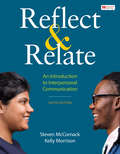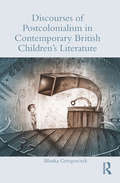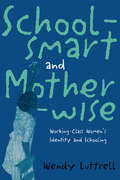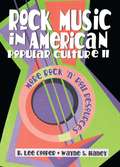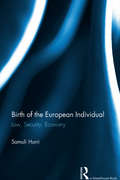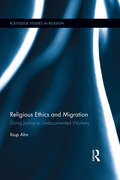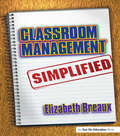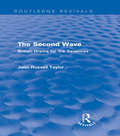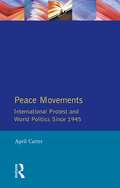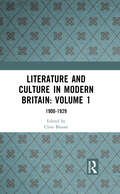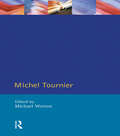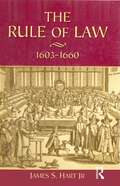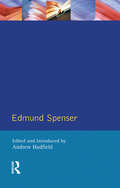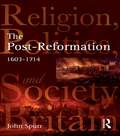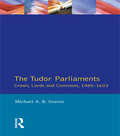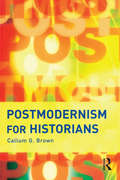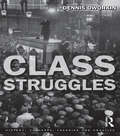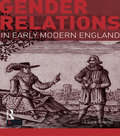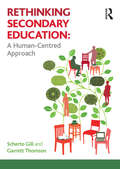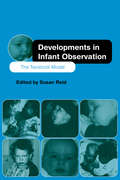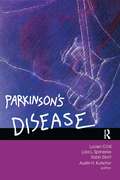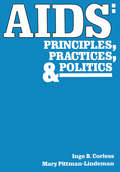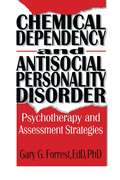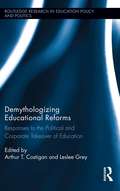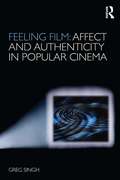Special Collections
Benetech’s Global Certified Accessible Titles
Description: Benetech’s GCA program is the first independent third-party EPUB certification to verify ebook accessibility. By creating content that is born accessible, publishers can meet the needs of all readers. Learn more: https://bornaccessible.benetech.org/
- Table View
- List View
Reflect & Relate
by Steven McCornack and Kelly MorrisonCurrent, inclusive, and authoritative, Reflect & Relate, Sixth Edition, has set the new standard for interpersonal communication texts. Steve McCornack and Kelly Morrison, both distinguished scholars and award-winning teachers, draw on their twenty-five years of classroom experience to connect classic and current communication theory and research to the actual lives of today's students.For the sixth edition, the authors built on their leading gender coverage by partnering with an advisory board of culturally responsive-sustaining pedagogy leaders to create an even more inclusive text that models for and guides students in culturally self-aware and inclusive communication. The revision features over 300 new scholarly citations, and responds to the real and growing interpersonal challenges students currently face: how to form positive relationships to support health and wellness, within increasingly online contexts, and with people who have a variety of backgrounds, abilities, and experiences. Additionally, coverage of mediated communication—its advantages, as well as its challenges—has been thoroughly updated to support students in today's digital world.LaunchPad for Reflect & Relate includes the full e-book along with powerful assessments, a full video library, LearningCurve adaptive quizzing, and Making Relationship Choices video activities to support you and your students—whether you are teaching face-to-face or online, synchronously or asynchronously.
Discourses of Postcolonialism in Contemporary British Children's Literature
by Blanka GrzegorczykThis book considers how contemporary British children’s books engage with some of the major cultural debates of recent years, and how they resonate with the current preoccupations and tastes of the white mainstream British reading public. A central assumption of this volume is that Britain’s imperial past continues to play a key role in its representations of race, identity, and history. The insistent inclusion of questions relating to colonialism and power structures in recent children’s novels exposes the complexities and contradictions surrounding the fictional treatment of race relations and ethnicity. Postcolonial children’s literature in Britain has been inherently ambivalent since its cautious beginnings: it is both transgressive and authorizing, both undercutting and excluding. Grzegorczyk considers the ways in which children’s fictions have worked with and against particular ideologies of race. The texts analyzed in this collection portray ethnic minorities as complex, hybrid products of colonialism, global migrations, and the ideology of multiculturalism. By examining the ideological content of these novels, Grzegorczyk demonstrates the centrality of the colonial past to contemporary British writing for the young.
School-smart and Mother-wise
by Wendy LuttrellSchool-smart and Mother-wise illustrates how and why American education disadvantages working-class women when they are children and adults. In it we hear working-class women--black and white, rural and urban, southern and northern--recount their childhood experiences, describing the circumstances that led them to drop out of school. Now enrolled in adult education programs, they seek more than a diploma: respect, recognition, and a public identity. Drawing upon the life stories of these women, Wendy Luttrell sensitively describes and analyzes the politics and psychodynamics that shape working-class life, schooling, and identity. She examines the paradox of women's education, particularly the relationship between schooling and mothering, and offers practical suggestions for school reform.
Rock Music in American Popular Culture II
by Frank Hoffmann and B Lee Cooper and Wayne S Haney and Beulah B RamirezFrom “Who Put the Bomp (in the Bomp, Bomp, Bomp)?” to a list of all song titles containing the word “werewolf,” Rock Music in American Popular Culture II: More Rock ’n’Roll Resources continues where 1995’s Volume I left off. Using references and illustrations drawn from contemporary lyrics and supported by historical and sociological research on popular cultural subjects, this collection of insightful essays and reviews assesses the involvement of musical imagery in personal issues, in social and political matters, and in key socialization activities. From marriage and sex to public schools and youth culture, readers discover how popular culture can be used to explore American values. As Authors B. Lee Cooper and Wayne S. Haney prove that integrated popular culture is the product of commercial interaction with public interest and values rather than a random phenomena, they entertainingly and knowledgeably cover such topics as: answer songs--interchanges involving social events and lyrical commentaries as explored in response recordings horror films--translations and transformations of literary images and motion picture figures into popular song characters and tales public schools--images of formal educational practices and informal learning processes in popular song lyrics sex--suggestive tales and censorship challenges within the popular music realm war--examinations of persistent military and home front themes featured in wartime recordingsRock Music in American Popular Culture II: More Rock ‘n’Roll Resources is nontechnical, written in a clear and concise fashion, and explores each topic thoroughly, with ample discographic and bibliographic resources provided for additional research. Arranged alphabetically for quick and easy reference to specific topics, the book is equally enjoyable to read straight through. Rock music fans, teachers, popular culture professors, music instructors, public librarians, sound recording archivists, sociologists, social critics, and journalists can all learn something, as the book shows them the cross-pollination of music and social life in the United States.
Birth of the European Individual
by Samuli HurriThis book examines the birth of the European individual as a juridical problem, focusing on legal case dossiers from the European Court of Justice as an electrifying laboratory for the study of law and society. Foucault’s story of the modern subject constitutes the book’s main theoretical inspiration, as it considers the encounter between legal and other practices within a more general field of juridical power: a network of active relations, between different social spheres. Through the analysis of delinquent individuals – each expelled from one of the Member States – the raw material for constructing the idea of the European individual is uncovered. The European individual, it is argued, emerged out of the intersection of regimes of law, security and economy, and its practices of knowledge-power. Birth of the European Individual: Law, Security, Economy will be of interest to those studying the individual in law, as well as anyone considering the relationships between power and the individual.
Religious Ethics and Migration
by Ilsup AhnWhat does it mean to provide justice for undocumented workers who have been living among us without proper legal documentation? How can we do justice to the undocumented migrants who have been doing the low-skilled, low-paid jobs unwanted by citizens? Why should we even try to do justice for people who violate the laws of the society? Religious Ethics and Migration: Doing Justice to Undocumented Workers addresses these questions from a distinctive religious ethical perspective: the Christian theology of forgiveness and radical hospitality. In answering these questions, the author employs in-depth interdisciplinary dialogues with other relevant disciplines such as immigration history, global economics, political science, legal philosophy, and social theory. He argues that the political appropriation of a Christian theology of forgiveness and the radical hospitality modeled after it are the most practical and justifiable solutions to the current immigration crisis in North America. Critical and interdisciplinary in its approach, this book offers a unique, comprehensive, and balanced perspective regarding the urgent immigration crisis.
Classroom Management Simplified
by Elizabeth BreauxThe tips in this book are accompanied by typical classroom scenarios and step-by-step instructions on how to implement them. Also included are actual dialogues to use with your students.
The Second Wave
by John Russell TaylorIn the 1970s the revolution that had swept the British theatre in the 1950s had already become accepted as the new establishment. Areas that had been previously regarded as remote ideals - including permanent repertory companies, a lively provincial theatre and an extensive spread of avant-garde and fringe theatrical activities - were now considered commonplace. In this title, first published in 1971, John Russell Taylor assesses the prospects of the British theatre at the start of the 1970s and indicates its points of weakness and its strengths. In this context are placed the key figures among the Second Wave of dramatists, and detailed critical commentaries on the work of writers such as David Mercer, Tom Stoppard and Peter Terson. This is an indispensable introduction for any student with an interest in the history and development of the British theatre and the people who have played instrumental roles in this.
Peace Movements
by April CarterThere is a long tradition of opposition to war and organized peace campaigns date from 1815. Since 1945, however, modern weapons technology has threatened world wide destruction and has stimulated widespread protests. This book sketches in the background of thinking about peace and resistance to war before 1945, and then examines how public opposition to nuclear weapons and testing grew in the 1950s and early 1960s. Later chapters cover the major ressurgence of nuclear disarmament campaigns in the 1980s. The book also looks at how peace protest has spread from its origins in North America and North West Europe to embrace many parts of the world; opposition to nuclear testing has indeed been particularly strong in Japan, Australia, New Zealand and the Pacific islands. The period 1945 to 1990 was dominated by the Cold War between the USA and USSR, and the role of the Soviet-sponsored World Peace Council caused difficulties for indeptendent peace groups in the West. During the 1980s the emergence of autonomous peace activity in a number of East European countries, and even on a very small scale in the USSR itself, transformed the possibilities for East-West co-operation between citizens to urge disarmament and political change. A chapter examines these developments. Opposition to all forms of militarism has spread in the last 30 years. This book charts the struggles to extend the right to conscientious objection to military service, and draft resistance to particular wars - for example in Southern Africa and Israel. It also looks in some detail at the growing opposition to the war in the Vietnam. The recent protests against the Gulf War are surveyed briefly in an epilogue.
Literature and Culture in Modern Britain
by Clive BloomThe first in a three-volume sequence, this book covers the period between 1900 and 1929, providing a perceptive and thorough analysis of British literature within its historical, cultural and artistic context. It identifies the crucial, interwoven relationships between literature and the visual arts, modern poetry, popular fiction, journalism, cinema, music and radio. Much factual detail and a literary chronology guide the reader through the text.
Michel Tournier
by Michael WortonThis volume of essays brings together critical analysis and commentary on the literary work of Michel Tournier.
The Rule of Law, 1603-1660
by James S. Hart JRThis book measures contemporary attitudes to the law - within and outside of the legal profession – to see how c17th century Englishmen defined the role of law in their society, to see what their expectations were of the law and how these expectations helped shape political debate – and ultimately determined political decisions – over the course of a very turbulent century.
Edmund Spenser
by Andrew HadfieldThis collection represents some of the best recent critical writing on Edmund Spenser, a major Renaissance English poet. The essays cover the whole of Spensers work, from early literary experiments such as The Shepeardes Calendar, to his unfinished crowning work,The Fairie Queene. The introduction provides an overview of critical responses to Spenser, setting his work and the debates which it has generated in their perspective contexts: new historicist, post-structural, psychoanalytic and feminist. His study also covers the critical responses of leading British, Irish and American scholars.
The Post-Reformation
by John SpurrThe 17th century was a dynamic period characterized by huge political and social changes, including the Civil War, the execution of Charles I, the Commonwealth and the Restoration. The Britain of 1714 was recognizably more modern than it was in 1603. At the heart of these changes was religion and the search for an acceptable religious settlement, which stimulated the Pilgrim Fathers to leave to settle America, the Popish plot and the Glorious Revolution in which James II was kicked off the throne. This book looks at both the private aspects of human beliefs and practices and also institutional religion, investigating the growing competition between rival versions of Christianity and the growing expectation that individuals should be allowed to worship as they saw fit.
Tudor Parliaments,The Crown,Lords and Commons,1485-1603
by Michael A.R. GravesThis excellent short survey looks at the workings of parliament under the first four Tudor monarchs. After an introductory first section which looks at parliament's medieval origins, the author then considers all aspects of early parliamentary history - including the historiography of the early Tudor parliaments, membership and attendance, the legislative roles of the Lords and Commons and the specific parliaments themselves.
Postmodernism for Historians
by Callum G. BrownPostmodernism is an essential approach to History. This is the first dedicated primer on postmodernism for the historian. It offers a step-by-step guide to postmodern theory, includes a guide to how historians have applied the theory, and provides a review of why its critics are wrong. In simple and clear language, it takes the reader through the chain of theory that developed in the 20th century to become now, in the early 21st century, the leading stimulant of new forms of research in History.With separate chapters on The Sign, The Discourse, Post/Structuralism, The Text, The Self, and Morality, this book will encourage a new critical awareness of Theory when reading books of History, and when writing essays and dissertations. Armed with the principal ideas of Saussure, Barthes, Foucault, and Derrida, the historians can formulate how to combine empirical History with the excitement of fresh perspectives and new skills, merged in the new moral impetus of the postmodern condition. Designed for the beginner this is the essential postmodern starting point.
Class Struggles
by Dennis L. DworkinIn the 1960s and 1970s the study of history and sociology was heavily influenced by Marxism and theories of class. But the collapse of Communism and significant changes in culture and society threw the study of class into crisis. Its most basic premises were called into question. More recently accelerating globalisation, proliferating multinational corporations and unbridled free-market capitalism have given the study of class a new significance and caused historians and sociologists to revisit the debate.This book looks at the changes that caused the crisis in the study of class and shows how new, vibrant theories have appeared that will drive forward our understanding of history and sociology.
Gender Relations in Early Modern England
by Laura GowingThis concise and accessible book explores the history of gender in England between 1500 and 1700. Amidst the political and religious disruptions of the Reformation and the Civil War, sexual difference and gender were matters of public debate and private contention. Laura Gowing provides unique insight into gender relations in a time of flux, through sources ranging from the women who tried to vote in Ipswich in 1640, to the dreams of Archbishop Laud and a grandmother describing the first time her grandson wore breeches. Examining gender relations in the contexts of the body, the house, the neighbourhood and the political world, this comprehensive study analyses the tides of change and the power of custom in a pre-modern world. This book offers: Previously unpublished documents by women and men from all levels of society, ranging from private letters to court cases A critical examination of a new field, reflecting original research and the most recent scholarship In-depth analysis of historical evidence, allowing the reader to reconstruct the hidden histories of women Also including a chronology, who’s who of key figures, guide to further reading and a full-colour plate section, Gender Relations in Early Modern England is ideal for students and interested readers at all levels, providing a diverse range of primary sources and the tools to unlock them.
Rethinking Secondary Education
by Garrett Thomson and Scherto Gill'This is a timely, accessible and engaging book of considerable intellectual stature, bold imagination and practical wisdom. Not only does it develop penetrating, elegant analyses of what is wrong with current state controlled and alternative approaches to contemporary education, it also offers imaginative, practical suggestions for a more fulfilling, human centred alternative.' Professor Michael Fielding, Institute of Education, University of London, UK. 'With great sensitivity and force, and in wonderfully clear prose, Scherto Gill and Garrett Thomson explore some fundamental questions about what we want from our education system and what we can expect from it. [...] It is highly recommended for all who are interested in education, whether from a more theoretical point of view or from a more practical point of view' Professor Adrian W. Moore, Faculty of Philosophy, University of Oxford, UK. Could we have a system of secondary education that provides alternatives to the current mainstream schooling and its emphasis on exams, learning outcomes and the delivery of a fixed curriculum? How could such a system focus on both human and educational values? How could secondary education combine the personal development of students with good academic standards? In response to these questions, Gill and Thomson have written a new, cutting-edge text aimed at all those involved in the study of education or teacher training. Rethinking Secondary Education explores, debates and critiques new and alternative approaches to teaching young people today. The book discusses a 'human-centred' approach to curriculum, pedagogy, assessment and the culture of schools and colleges. It is grounded in theory and empirical research, discussing the need for a curriculum for the future, bridging a gap between mainstream and alternative education. It also offers practical guidance on how these ideas can be put into practice, making it an ideal resource for trainee teachers, experienced practitioners and students of education alike. Key features of the text: A balanced approach, comparing and contrasting both traditional and alternative approaches to education Strong grounding in theory and research The inclusion of young people's perspectives and 'voices' on their education and on being an adolescent Links to practice - showing how the theory and research can actually be put into practice to bring about change
Developments in Infant Observation
by Susan ReidInfant observation carried out within the family is a compelling approach to the study of early human development, vividly revealing the impact of intergenerational patterns of child-rearing and the complex relationship between nature and nurture. It provides unique insights into the early origins of emotional disturbance and suggests ways in which healthy development can be promoted by both professional and parent, often resulting in changes to clinical practice. Developments in Infant Observation: The Tavistock Model is a collection of twelve key papers from international contributors. It offers an overview of current practice, explores the new concepts that have arisen from direct observation, and shows how the findings from observation are being applied in the research setting. An essential text for child psychotherapists in training and practice, this is a book that brings alive the academic theories of child development through thought-provoking and stimulating case-studies which will be of interest to any professional working with children.
Parkinson's Disease and Quality of Life
by Lucien Côté and Lola L. Sprinzeles and Robin Elliott and Austin H. KutscherLearn to handle the problems that Parkinson's patients faceThrough Parkinson's Disease and Quality of Life, you will discover common problem areas seen in patients with Parkinson's disease. This book explores problems that interfere with functional independence of patients and gives examples of occupational therapy intervention and treatment techniques. Parkinson's Disease and Quality of Life boldly deals with many seldom talked about real-life issues facing people with Parkinson's disease, including continued sexual intimacy and urinary incontinence. Although these issues may not be curable, this book provides you with effective treatments through data and case studies. Parkinson's Disease and Quality of Life offers caregivers a step-by-step plan to get organized. It includes a plan to put together a workbook of all relevant information, as well as tips on how to safeguard every room for a Parkinson's disease patient. This book helps remind you that the families of the patient must not be forgotten and that they can get the help they need through support groups, community resources, and from professional staffing such as nurses and aides. Parkinson's Disease and Quality of Life will assist you in helping your patients by: using music therapy to help calm patients realizing the legal impact of Parkinson's disease by discussing living wills, health care proxies, durable power of attorney, and revocable and irrevocable trusts with your clients discovering that cognitive changes, dementia, and depression can complicate the treatment of the disease and be more disabling than the loss of motor function exploring the nursing home as a viable options for clients as well as their familiesParkinson's Disease and Quality of Life also brings to light the important subject of knowing the patients insurance policies and working out contingency plans, like living wills, before they are needed. This book gives you much-needed information on accessing benefits for Parkinson's patients, including medicare, social security, Veteran's benefits, and much more. Parkinson's Disease and Quality of Life is full of methods and ideas to improve the lives of the Parkinson's patient as well as their families.
AIDS
by Inge B. Corless and Mary Pittman-LindemanFirst published in 1989. Routledge is an imprint of Taylor & Francis, an informa company.
Chemical Dependency and Antisocial Personality Disorder
by Bruce Carruth and Gary G ForrestChemical Dependency and Antisocial Personality Disorder gives you the information and clinical skills necessary to assess and evaluate persons suffering from substance abuse and/or antisocial personality disorders and details how you can develop effective psychotherapy and treatment strategies. From its helpful pages that contain diagnostic criteria and clinical interviewing and assessment guidelines, you learn to accurately diagnose substance use and antisocial personality disorders. The book also provides you with the historical and clinical perspectives of such disorders and their epidemiology and etiology to give you a thorough background and understanding of the subject. Case studies and therapy vignettes are included to provide you with actual clinical examples to illustrate concepts and ideas. You will appreciate the book’s in-depth discussions of treatment strategies that can greatly enhance your effectiveness. You’ll find this volume is an invaluable research resource for refreshing your approaches for helping persons with substance abuse and antisocial personality disorders.Much of the content of Chemical Dependency and Antisocial Personality Disorder is based on the author’s two decades of experience working with patients suffering from substance use and antisocial personality disorders. Some topics addressed include: accurate differential diagnosis resistance the use of structure in treatment therapist-patient relationship dynamics treatment outcome effectiveness, relapse, and recovery. Alcohol/drug counselors, psychiatrists, psychologists, and corrections, probation, and parole officers who want to be more effective in their work with chemically dependent and antisocial clients will find this a practical, helpful, and informative guide. This enlightening book examines many of the most difficult and clinically problematic issues that are associated with the psychotherapy and rehabilitation of chemically dependent and/or antisocial patients. Much of the content of Chemical Dependency and Antisocial Personality Disorder is based on the author’s two decades of experience working with patients suffering from substance use and antisocial personality disorders. Some topics addressed include accurate differential diagnosis, resistance, the use of structure in treatment, therapist-patient relationship dynamics, and treatment outcome effectiveness, relapse, and recovery. Alcohol/drug counselors, psychiatrists, psychologists, and corrections, probation, and parole officers who want to be more effective in their work with chemically dependent and antisocial clients will find this a practical, helpful, and informative guide.
Demythologizing Educational Reforms
by Leslee Grey and Arthur T. CostiganThere are dozens of myths surrounding educational reform today, maintaining the school’s role in economic competitiveness, the deficiency of teachers, the benefits of increased testing, and the worthiness of privatization. In this volume, the editors argue that this discussion has been co-opted to reflect the values and worldviews of special interest groups such as elites in power, politicians, corporate educational foundations, and the media. Prominent educational writers tackle contemporary issues such as neoliberalism, suburban schooling, charter schools and parental involvement. They expose the "logic behind the talk" and critically examine these problematic beliefs to uncover meaningful improvements in education which are better grounded in the social, economic, political and educational realities of contemporary society.
Feeling Film
by Greg SinghCinema has the capacity to enflame our passions, to arouse our pity, to inspire our love. Feeling Film is a book that examines the emotional encounters found in contemporary popular cinema cultures. Examining melodrama, film noir, comic book franchises, cult indie movies and romantic comedy within the context of a Jungian-informed psychology and contemporary movements in film-philosophy, this book considers the various kinds of feelings engendered by our everyday engagements with cinema. Greg Singh questions the popular idea of what cinema is, and considers what happens during the anticipation and act of watching a movie, through to the act of sharing our feelings about them, the reviewing process and repeat-viewing practices. Feeling Film does this through a critique of purely textual approaches, instead offering a model which emphasises lived, warm (embodied and inhabited) psychological relationships between the viewer and the viewed. It extends the narrative action of cinema beyond the duration of the screening into realms of anticipation and afterlife, in particular providing insight into the tertiary and participatory practices afforded through rich media engagement. In rethinking the everyday, co-productive relationship between viewer and viewed from this perspective, Feeling Film reinstates the importance of feelings as a central concern for film theory. What emerges from this study is a re-engagement of the place of emotion, affect and feeling in film theory and criticism. In reconsidering the duration of the cinematic encounter, Feeling Film makes a significant contribution to the understanding of the inter-subjective relationship between viewer and viewed. It takes post-Jungian criticism into the realms of post-cinema technologies and reignites the dialogue between depth psychology and the study of images as they appear to, and for, us. This book will make essential reading for those interested in the relationship between film and aspects of depth psychology, film and philosophy students at advanced undergraduate and postgraduate levels, film and cinema academics and cinephiles.
